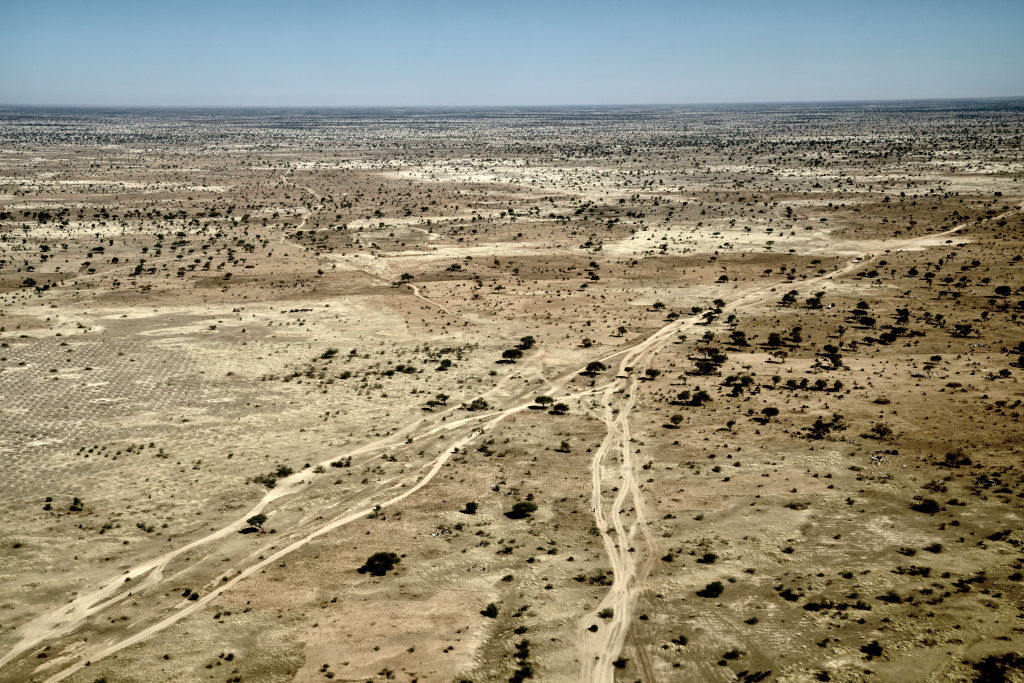ADF STAFF
Crime organizations and terrorist groups have woven a complex trafficking network moving illicit goods such as assault-style rifles, ammunition, explosives and fake medicine throughout the Sahel region.
Once used for legitimate trade, the routes cross porous borders in Burkina Faso, Cameroon, Chad, The Gambia, Guinea, Mali, Mauritania, Niger, Nigeria and Senegal.
“Organized crime is feeding on the vulnerabilities and also undermining stability and development in the Sahel,” François Patuel, head of the United Nations Office on Drugs and Crime (UNODC) Research and Awareness Unit, said in a new report. “Combining efforts and taking a regional approach will lead to success in addressing organized crime in the region.”
The illicit economy both funds and helps supply extremist groups. Extremist violence killed more than 19,100 people in Africa in 2022, a 48% increase over the previous year, according to the Africa Center for Strategic Studies. A majority of the violence was in the Sahel — mainly in Burkina Faso, Mali and Niger — and Somalia. Those areas accounted for 77% of all reported violent incidents on the continent in 2022.
A weeklong joint operation conducted by the UNODC and Interpol in December 2020 offered a glimpse of the issue.
The operation, known as Operation KAFO II, targeted smuggling hotspots in Burkina Faso, Côte d’Ivoire, Mali and Niger. The authorities screened more than 12,000 people, arrested several suspected terrorists, and intercepted 50 firearms, more than 6,000 rounds of ammunition, more than 40,000 sticks of dynamite and 28 detonator cords.
Weapons trafficking in the region benefits violent extremist groups such as al-Shabaab, Ansaroul Islam, Islamic State Sahel Province, Islamic State in Somalia and Jama’at Nusrat al-Islam wal Muslimeen. Explosives such as dynamite are commonly used in illegal mining operations.
“Trafficking in firearms is a lucrative business which, in turn, fuels and funds other types of serious crimes,” Interpol Secretary General Jürgen Stock said in a U.N. report. “Operation KAFO II shows the need to connect the dots between crime cases involving firearms and terrorists across different countries.”
The operation also seized 1,500 kilograms of cannabis and the drug khat, about 60,000 liters of stolen fuel and more than 2,000 boxes of contraband medicine.
A Deadly Toll
Trafficking of illegal drugs and medicines is a scourge that kills nearly 500,000 people in Sub-Saharan Africa annually, according to a February 2023 UNODC report titled “Trafficking in Medical Products in the Sahel.”
Up to 267,000 deaths per year are linked to falsified and substandard antimalarial medicines, while more than 169,200 deaths are linked to falsified and substandard antibiotics used to treat severe pneumonia in children.
According to the report, authorities seized more than 605 tons of medical products in West Africa between January 2017 and December 2021. The products typically come to the Sahel from major exporting countries such as China, Belgium, France and India, while some are manufactured in neighboring nations.
Once in West Africa, smugglers move medical products by bus, cars and trucks to the Sahel to avoid border controls. The report identified traffickers as pharmaceutical company employees, public officials, law enforcement officers, health agency workers and street dealers.
The UNODC offered recommendations to curb the illicit flow of drugs and fake medicines, including introducing tougher legislation to deter crimes such as smuggling, money-laundering and corruption.
“The confiscation and disposal of criminal assets, extradition and mutual legal assistance need to be introduced to ensure that no stage in the supply chain of falsified medicines is overlooked,” the February report said.

